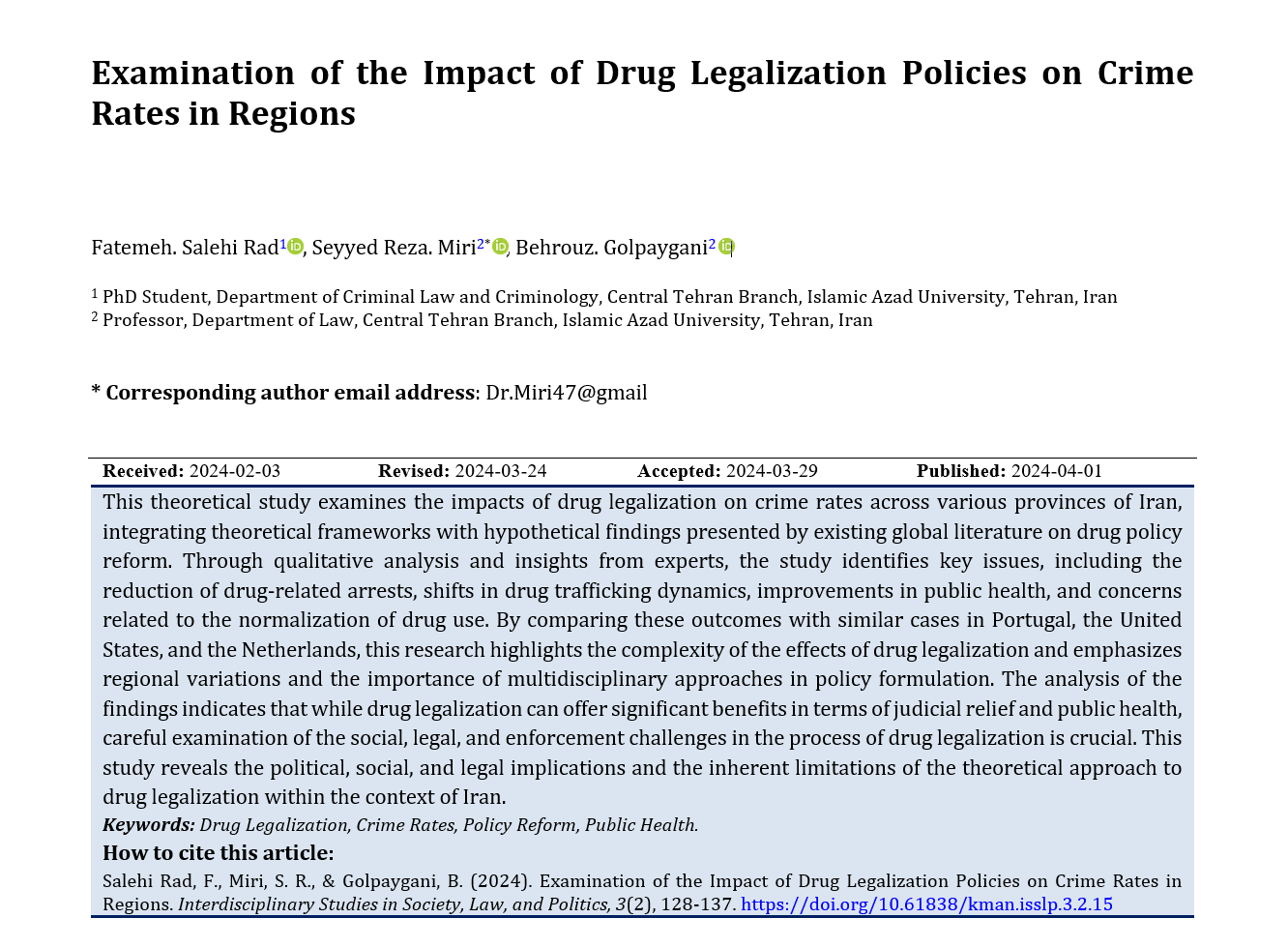Examination of the Impact of Drug Legalization Policies on Crime Rates in Regions
Keywords:
Drug Legalization, Crime Rates, Policy Reform, Public HealthAbstract
This theoretical study examines the impacts of drug legalization on crime rates across various provinces of Iran, integrating theoretical frameworks with hypothetical findings presented by existing global literature on drug policy reform. Through qualitative analysis and insights from experts, the study identifies key issues, including the reduction of drug-related arrests, shifts in drug trafficking dynamics, improvements in public health, and concerns related to the normalization of drug use. By comparing these outcomes with similar cases in Portugal, the United States, and the Netherlands, this research highlights the complexity of the effects of drug legalization and emphasizes regional variations and the importance of multidisciplinary approaches in policy formulation. The analysis of the findings indicates that while drug legalization can offer significant benefits in terms of judicial relief and public health, careful examination of the social, legal, and enforcement challenges in the process of drug legalization is crucial. This study reveals the political, social, and legal implications and the inherent limitations of the theoretical approach to drug legalization within the context of Iran
Downloads






